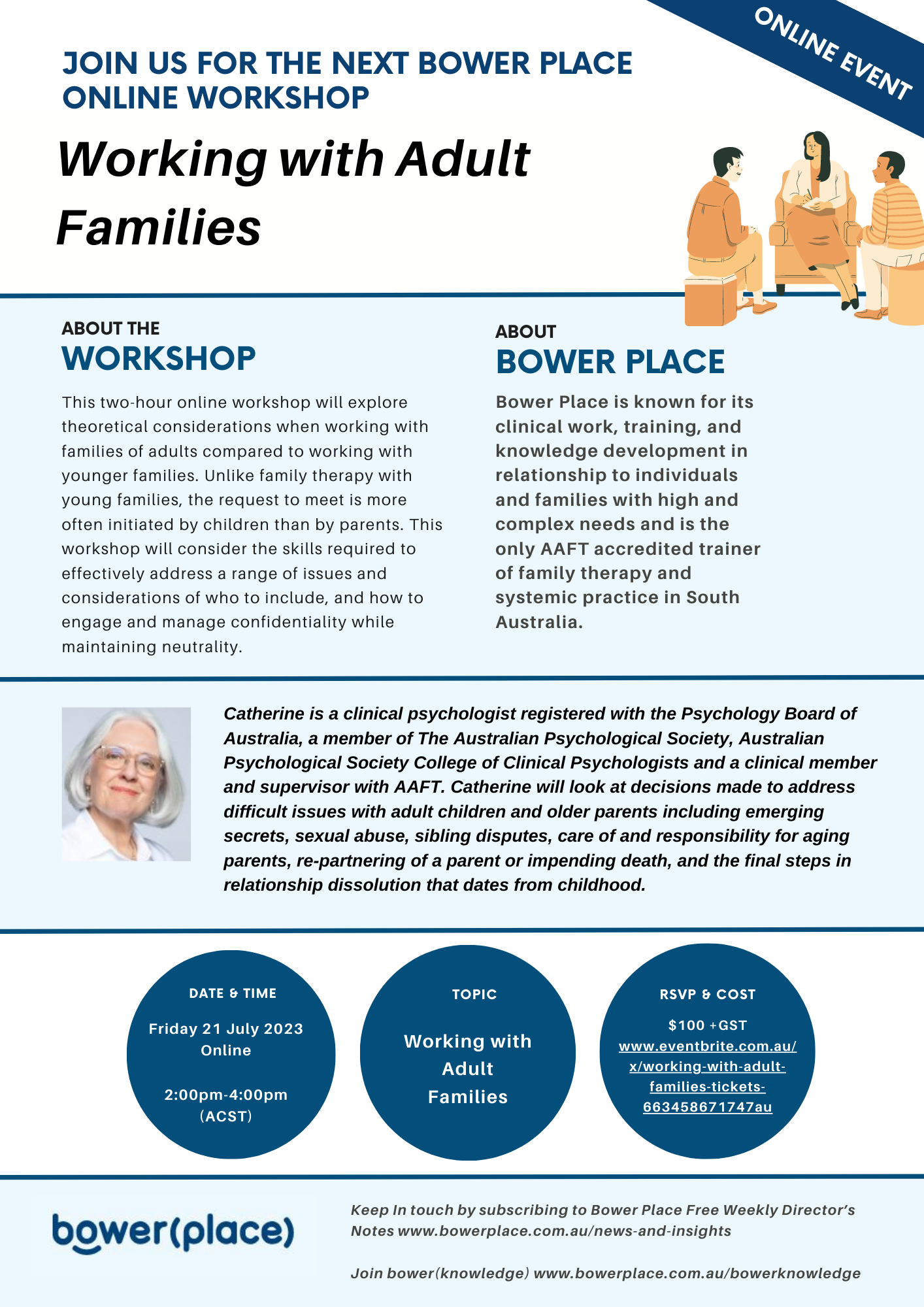Bower(method) is a systemic integrative model which assesses and supports selection of advice in human difficulties. The four lenses guide the activity of the practitioner and provide a scaffolding to manage the vast and often confusing information presented around a difficulty. It directs attention to the politics of the case, inside and outside pattern, time, and development. Information is both gathered and sorted according to the meta-frames. Information about the world clients grew up within contains information that can be located in each meta-frame.
Family of Origin
The importance of the family we came from both historically as the location of past experience and often trauma and in present relationships cannot be over-estimated, yet for many practitioners this resource is untapped. We may talk about childhood experiences and connect current struggles to past events, but rarely do we invite parents and siblings of adult clients to a session. Perhaps this reflects a preference for dealing with the immediate family where the problems ‘really lie’ or a wider view that older people have little to offer and are best left alone. We may become entrapped by our client’s narrative that parents and adult siblings are ‘just too difficult’ and ‘they wouldn’t come anyway.’ Working with a group of adults who may easily revert to distressed children is daunting for the most competent practitioner.
You Can and Should Go Home Again
In 1976 James Framo, a professor of psychology, published a paper outlining his method of conducting sessions with the family of origin of clients who he was seeing for marital and family therapy. This mostly forgotten and rarely referenced paper, describes in detail the rationale and process for convening and conducting sessions. His theoretical understanding was that ‘current marital and family difficulties are elaborations of relationship problems of the spouses in their original families. If adults are able to go back to deal directly with past and present issues with their families of origin, an opportunity exists for reconstructive changes to come about in their present family.’ He describes the process of joining each person and explaining the family conference as an opportunity, to get to know each other better and address important issues that have never been properly discussed. He reports that the sessions are usually quite active and emotional as past family patterns and conflicts are raised. Therapists become ‘traffic managers clarifying feelings, re-directing questions, asking others to listen when someone says something meaningful, or when a dyad interchanges.’ Sessions are highly variable in focus, style, pace, content, and issues and therapists must be dextrous and flexible. His preliminary observations suggest three potential outcomes. For some the meeting is directly and obviously helpful in terms of the original presenting problem and wider family relationships. Others reported an initial high only to be disappointed while the final group showed no appreciable difference either to their original problem or themselves.
Old Doesn’t Mean Irrelevant
While Framo’s work can be critiqued and is clearly dated it has much to offer the contemporary therapist. Just as we should not ignore and discount older family members in our work with their children, we should not ignore the wisdom of our own elders in the field.
Framo,J.(1976) Family of Origin as a Therapeutic Resource for Adults in Marital and Family Therapy: You Can and Should go Home Again Family Process 15:193-210

